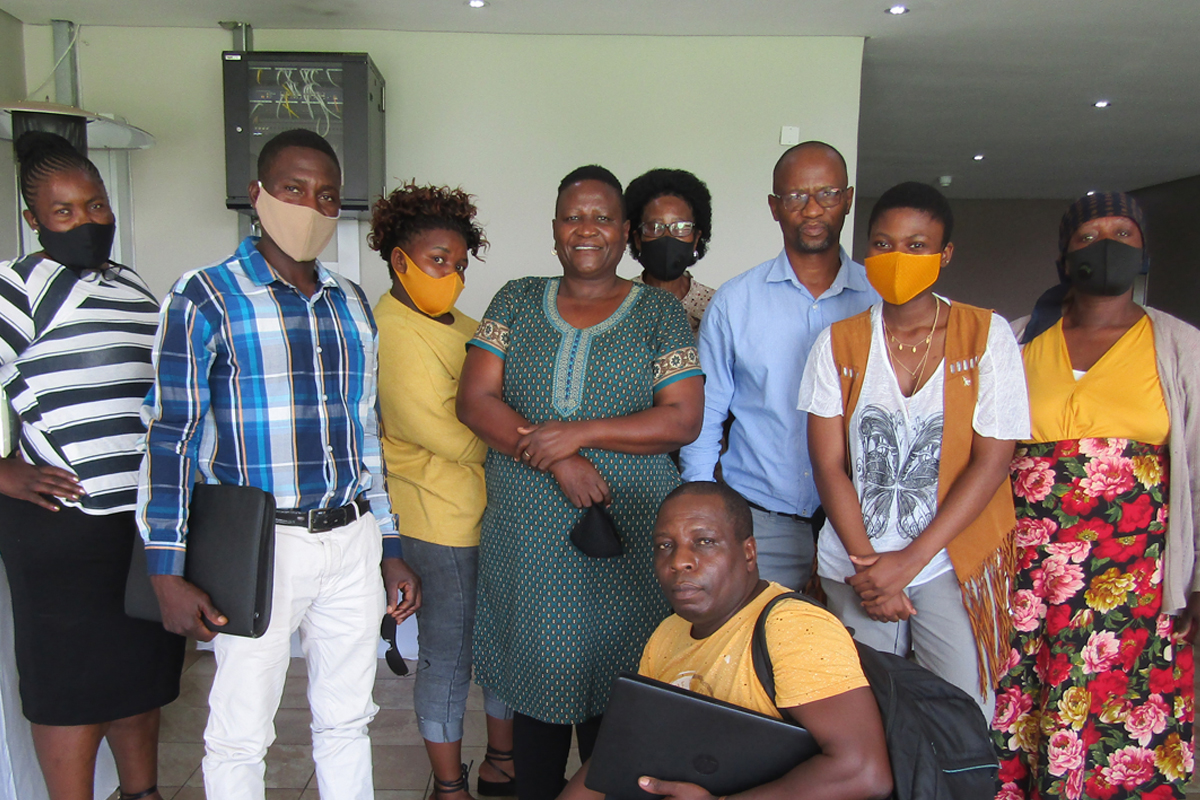The Womens’ Rights Unit at the Centre for Human Rights, University of Pretoria, in collaboration with the Botswana Labour Migrants Association (BOLAMA), organised a workshop to consider the non-ratification of the Protocol to the African Charter on Human and Peoples’ Rights on the Rights of Women in Africa (Maputo Protocol) by the government of Botswana. The aim of the workshop was to sustain advocacy efforts towards the ratification of the Maputo Protocol. The meeting was held online on 1 December 2020 and Ms Patience Mungwari, Ms Lydia Chibwe and Ms Anthonia Lola Dickson represented the Centre.
The workshop was opened by Ms Patience Mungwari. Speakers from academia and civil society organisations discussed the strengths of the Maputo Protocol as a framework for the promotion and protection of the rights of women and girls in Africa and demonstrated the need for Botswana to ratify it. The meeting participants also deliberated on the challenges that have impeded the ratification of the Maputo Protocol by Botswana and pledged to re-ignite the advocacy efforts of civil societies in Botswana towards the ratification of the Maputo Protocol.
Speakers included:
- Ms Matshidiso Mantle, Chairperson of the Women’s Committee OLDM Branch presented on the ‘Status of Women in Botswana: Challenges and Prospects’.
- Advocate Simangele Mavundla, a Lecturer at the University of Eswatini, presented on an ‘Overview of the African Human Rights System and the African Charter and its Protocols’.
- Dr Itumeleng Shale a Lecturer at the National University of Lesotho presented on an ‘Overview and importance of Maputo Protocol and the importance of its ratification of Protocol’.
- Tebogo Gareitsanye a Policy and Legal Coordinator at BONELA presented on ‘the role of Civil Society Organisations in the road to the ratification of the Maputo Protocol’.
The workshop participants committed to the following advocacy strategies to push for the ratification of the Maputo Protocol:
- Incorporating the Maputo Protocol into the labour law in Botswana (which is currently under review);
- Engaging the high-level consultative committee platform, (a tripartite structure made up of the government, private individuals and the labour movement), in advocacy and lobbying towards the ratification of the Maputo Protocol;
- The need to lobby more at the Labour Advisory Committee, which is the highest body at the Ministry of Labour;
- Strengthening traditional and social partners to carry out the agenda of the ratification of the Maputo Protocol;
- Lobbying for the ratification of the Maputo Protocol through the constitutional review process;
- Organising a national dialogue forum on the ratification of the Maputo Protocol;
- Organising community forums on the need to push forward the ratification of the Maputo Protocol;
- Empowering women through training so they can see the need for the ratification of the Maputo Protocol;
- Sensitising women in positions of power to champion the course of the ratification of the Maputo Protocol;
- Engaging the government officials in order to get their political commitment towards the ratification of the Maputo Protocol.
For more information, please contact:

Tel: +27 (0) 12 420 4306
Fax: +27 (0) 86 580 5743
lydia.chibwe@up.ac.za


